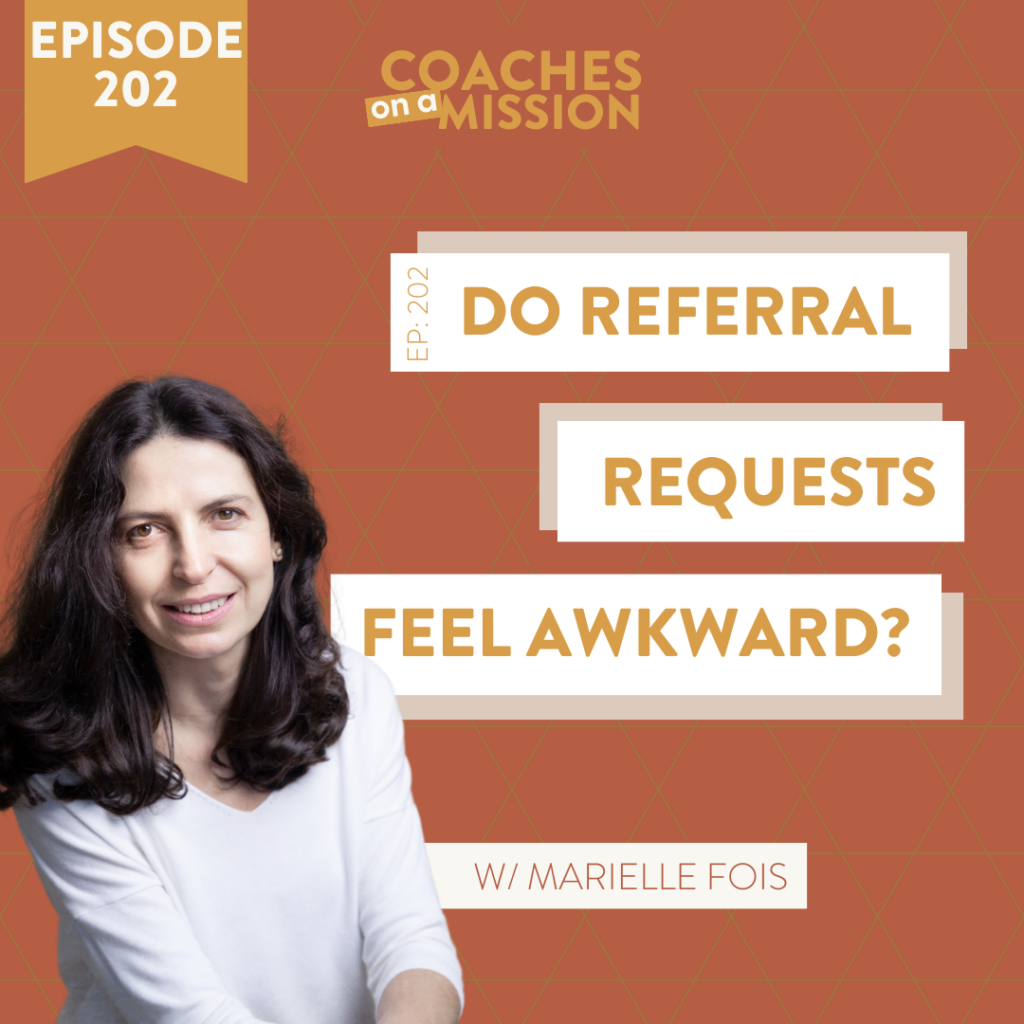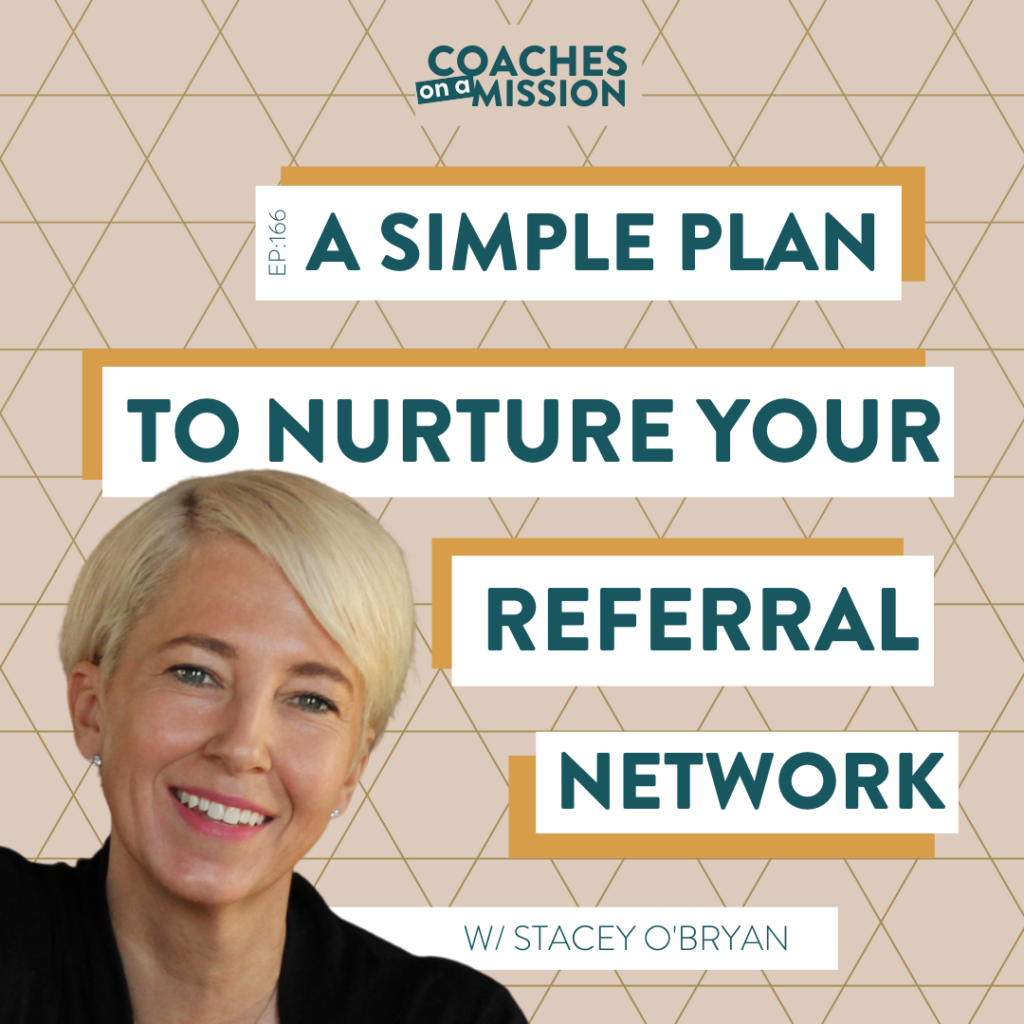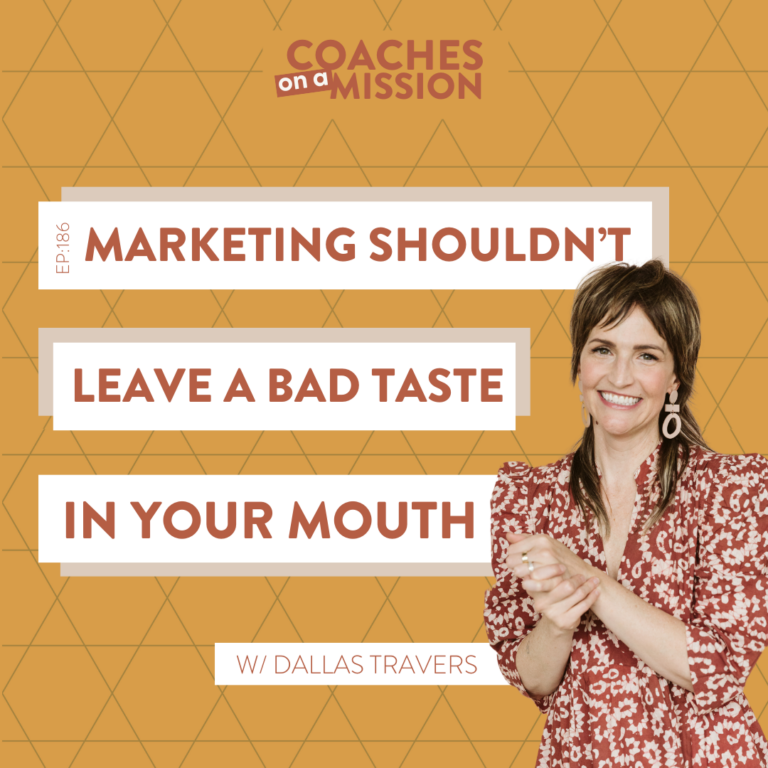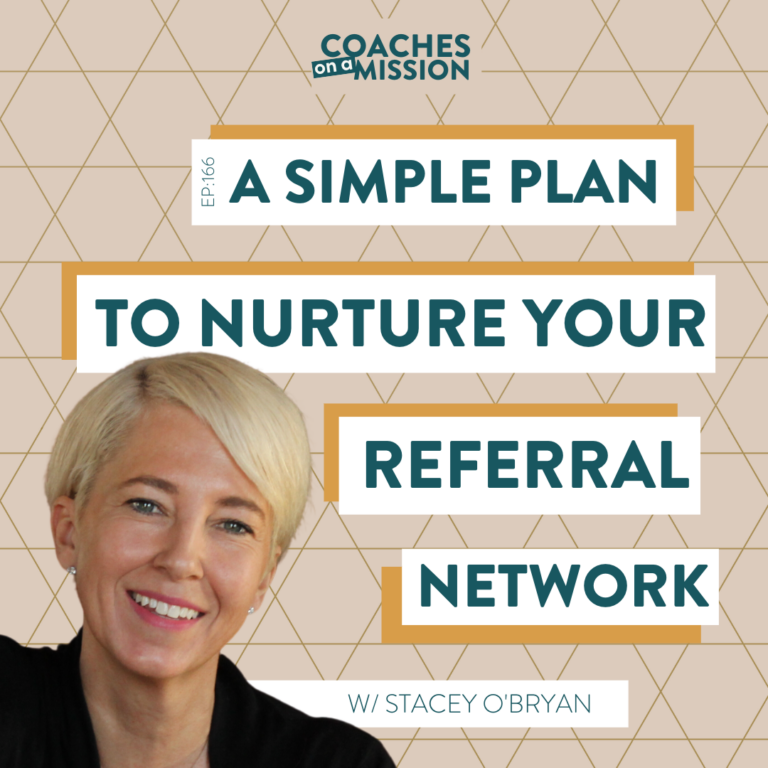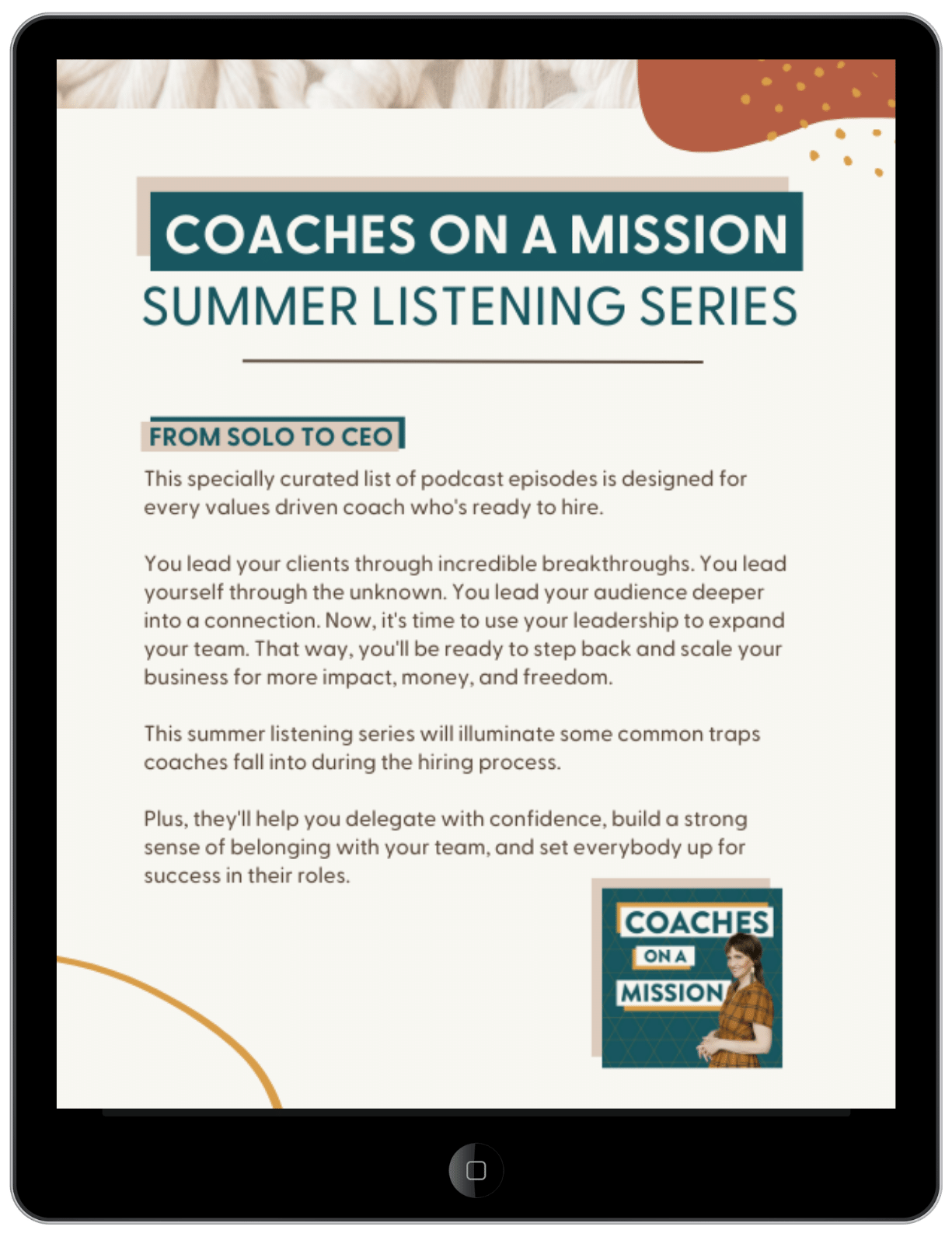I think most of us can agree that some of the best clients come through referrals. They often show up ready to hire you because they trust the person who recommended them to you in the first place, right?
Referral marketing is one of the three paths I teach in my Client Surge course for this very reason.
If you’re a LinkedIn coach who helps business owners find quality leads, asking for referrals is extremely straightforward. If you’re a copywriting coach who certifies copywriters, that’s pretty cut and dry as well.
But what if you’re a coach who does deep transformational, trauma-informed work that’s a little touchy for folks to talk about?
Or if you’re a health coach, how are you supposed to ask people to refer their friends without insulting them? “Hey… you seem like you need to be healthier. You should talk with Health Coach Jane.” Not cool.
This was the conundrum today’s guest and I will tackle inside the episode. Marielle Fois helps women stop negative self-talk so they can increase their self-confidence and show up with authenticity at work and in their relationships.
She’ll also be the first to tell you that she’s on the introverted side and she doesn’t feel like she has a big network. So the two of us put our heads together to figure out how we could tweak the Client Surge system to match her comfort level while making it as simple as possible for folks to send her referrals.
And by the end of our conversation, we were both very excited about the plan we ironed out. It still leverages referral marketing, but instead of asking folks to send referrals into a 1:1 sales call, Marielle will ask them to recommend a free intro workshop instead.
If you’re a coach who feels like it’s awkward for folks to refer their friends, Marielle’s plan could be the solution to your referral-getting problem.
Making Referral Requests Work For You
Asking for referrals sometimes feels like a tall order. I get it, it’s not everyone’s cup of tea. So let’s flip the script. Imagine you’re aiming for 7 new clients in a couple of months. How would you respond if a fellow coach, whom you’ve seen around but don’t know well, asks for your help to grow their business?
In an industry where heavy topics often dominate conversations, lighter discussions such as overcoming negative self-talk can be a breath of fresh air. Wouldn’t it be easier to refer someone who tackles such topics in a trust-building and user-friendly way?
So what if, instead of making referral requests for one-on-one connections, we lighten things up?
Picture this: You invite people to a class where you share tips on combating negative self-talk in a 40-minute session. It’s a lower-pressure offer that’s less about personal reputation and more about sharing valuable resources.
Suddenly, referral requests become as simple as saying, “Hey, we’re both coaches looking to grow. I have this class on overcoming negative thoughts. Would you mind sharing it with your community?”
Boom! The process is simplified, and you’ve even offered to return the favor for them in the future. Everyone wins!
Now, consider amplifying this strategy with some authentic and effective marketing. Personal outreach is key with social media being the cherry on top. It’s not just about scoring referrals – it’s a chance to grow your email list as well.
No need to go overboard with the presentation. Just lay out some concrete steps and run a Q&A session. Give people an authentic taste of what you offer, ramping up trust along the way.
Feeling excited about the possibilities?
Workshop Magic: Your Sales Call Secret Weapon
Ever thought about turning your workshops into a sales call magnet? Let’s talk about making it both simple and awesome.
When someone signs up for your workshop, don’t just send a basic confirmation email. Instead, tease them with a free one-on-one chat with you during the event. This way, you’re planting the seed for a sales call early on.
If you’re worried about the tech side, it’s pretty straightforward. You need a sign-up page, a few emails, and a Zoom session for the workshop. That’s it.
To ensure attendance, send a couple of friendly reminders along with the Zoom link.
After the workshop, prepare some engaging post-event emails to keep up the excitement and encourage folks to take the next step with you. Focus on sparking their curiosity about what you can offer them next. This method is about connecting with potential clients on a deeper level way before the sales call. It’s perfect for building your list, especially if direct referral requests feel daunting.
With a bit of organization and a strategy, setting up and running workshops can be fun and effective. Workshops could be your sneaky powerful tool in drawing people closer.
Conclusion
Navigating referral requests is a delicate balance of asking for support without making people feel uncomfortable.
By designing an intro class that mirrors the sales call experience, we can gently guide people to the next engagement steps, making the entire process more inviting.
For a deeper dive into mastering how to make referral requests work for you, I encourage you to listen to the full podcast.


